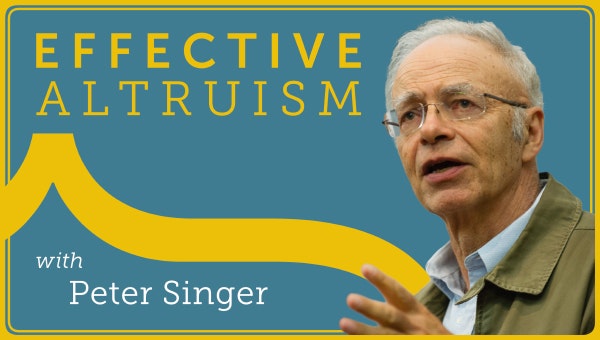Ethics Professor
Becoming an Ethics Professor: A Comprehensive Career Guide
An Ethics Professor is an academic professional dedicated to the study, teaching, and research of morality, values, and principles of conduct. They explore fundamental questions about right and wrong, justice, fairness, and the good life, often within university or college settings. Their work involves deep engagement with philosophical traditions, contemporary moral problems, and the ethical dimensions of various fields like law, medicine, business, and technology.
Working as an Ethics Professor can be intellectually stimulating, offering the chance to grapple with profound questions and contribute to shaping ethical understanding. You might find excitement in guiding students through complex moral dilemmas, conducting research that sheds light on pressing societal issues, or engaging in interdisciplinary collaborations that apply ethical frameworks to real-world challenges. The pursuit of knowledge and the potential to influence future generations are core attractions of this academic path.
Understanding the Role of an Ethics Professor
The life of an Ethics Professor revolves around three core pillars: teaching, research, and service. Each component is vital to a successful academic career in this field, demanding a diverse set of skills and commitments. Navigating these responsibilities effectively is key to thriving within academia.
Teaching and Mentorship
Teaching forms a significant part of an Ethics Professor's duties. This typically involves designing and delivering courses at the undergraduate and graduate levels. Topics can range from introductory ethics and moral philosophy to specialized seminars on bioethics, environmental ethics, political philosophy, or the history of ethics.
Effective teaching requires not only expertise in the subject matter but also strong communication skills and the ability to foster critical thinking among students. Professors create syllabi, lead discussions, assign readings, grade assignments, and provide constructive feedback. Mentoring students, advising them on research projects, and writing letters of recommendation are also important aspects of the role.
Beyond the classroom, professors often supervise graduate student research, guiding doctoral candidates through the complex process of developing and writing their dissertations. This mentorship is crucial for training the next generation of scholars in the field.
These courses provide a solid foundation in exploring core ethical concepts and political philosophy, which are central to the work of an Ethics Professor.
Research and Publication
Conducting original research is a cornerstone of an academic career in ethics. Professors are expected to contribute new knowledge and perspectives to the field by investigating specific ethical questions, theories, or applications. This involves extensive reading, critical analysis, developing arguments, and writing scholarly articles or books.
Research areas can be diverse, spanning theoretical ethics (e.g., exploring the nature of moral reasoning), meta-ethics (e.g., investigating the meaning of moral terms), applied ethics (e.g., analyzing ethical issues in medicine or artificial intelligence), or the history of ethical thought.
Disseminating research findings is crucial. Ethics Professors present their work at academic conferences and publish in peer-reviewed journals and with academic presses. A strong publication record is typically essential for career advancement, particularly for achieving tenure.
These books delve into foundational ethical theories and their application, reflecting the kind of scholarly engagement expected in the field.
Service to the University and Profession
Academic service refers to the administrative and collegial activities that support the functioning of the university and the broader scholarly community. Ethics Professors typically participate in departmental meetings, serve on committees (e.g., curriculum development, admissions, faculty search), and contribute to university governance.
Service extends beyond the home institution. Professors may engage in peer review for academic journals or publishers, evaluating the work of other scholars. They might also take on leadership roles in professional organizations, help organize conferences, or participate in public outreach activities related to ethics.
Balancing teaching, research, and service requires excellent time management and organizational skills. While research and teaching often receive more focus, service is an integral part of being a contributing member of the academic community.
Formal Education Pathways to Become an Ethics Professor
The journey to becoming an Ethics Professor is academically rigorous, typically requiring advanced graduate study. Understanding the educational milestones is crucial for anyone considering this career path.
Undergraduate Foundations
While there isn't one specific required major, a strong undergraduate background in Philosophy is the most common and direct preparation. Coursework in ethics, logic, metaphysics, epistemology, and the history of philosophy provides essential grounding.
Related fields like Religious Studies, Political Science, History, Literature, or Classics can also offer valuable perspectives and analytical skills relevant to ethics. Strong writing, critical reading, and argumentation skills, developed across various humanities and social science disciplines, are paramount.
Regardless of the major, demonstrating a serious interest in philosophical ethics through coursework, independent study, or a senior thesis is beneficial for graduate school applications.
Graduate Studies: MA and PhD Programs
A Doctor of Philosophy (PhD) in Philosophy, often with a specialization in ethics or moral philosophy, is generally required to become an Ethics Professor at the university level. Some individuals may first pursue a Master of Arts (MA) degree, either as a stepping stone to a PhD or as a terminal degree for certain teaching positions (e.g., at community colleges).
PhD programs typically involve several years of intensive coursework covering major areas of philosophy, followed by comprehensive examinations to demonstrate broad knowledge. The centerpiece of the PhD is the dissertation: a substantial work of original research on a specific topic in ethics, supervised by a faculty committee.
The entire PhD process can take anywhere from 5 to 8 years or more, depending on the program, the student's progress, and the nature of the dissertation research. Securing funding through fellowships or teaching assistantships is common and often necessary.
These foundational texts are staples in philosophy programs and essential reading for aspiring ethicists.
Postdoctoral Research and Early Career
After completing the PhD, many aspiring academics undertake postdoctoral research positions, often called "postdocs." These are temporary research-focused roles (typically 1-3 years) designed to allow recent graduates to deepen their research expertise, publish more work, and gain additional experience before seeking permanent faculty positions.
Postdocs can be particularly valuable in a competitive academic job market, providing time to strengthen one's curriculum vitae (CV). The transition from graduate student to postdoc, and then to an entry-level faculty position (often Assistant Professor), marks the early stages of an academic career.
Competition for tenure-track faculty positions is often intense, requiring a strong record of research, teaching potential, and a good fit with the hiring department's needs.
Leveraging Online Learning and Independent Study
While formal degrees are standard, online resources and self-directed learning can significantly supplement the journey towards becoming an Ethics Professor, especially for those exploring the field or seeking to deepen their knowledge outside traditional structures.
Supplementing Formal Education
Online courses offer accessible ways to explore specific areas of ethics or fill gaps in one's background. Platforms like OpenCourser aggregate courses from universities worldwide, covering topics from introductory moral philosophy to specialized areas like bioethics or AI ethics. You can easily browse through thousands of courses on OpenCourser.
These resources can be invaluable for undergraduates considering graduate study, graduate students wanting to explore adjacent fields, or even established academics looking to update their knowledge on emerging ethical issues. Using features like "Save to List" on OpenCourser can help organize potential courses.
For those seeking a structured approach, online certificate programs or sequences of courses can provide focused learning pathways. Remember to check the OpenCourser Learner's Guide for tips on maximizing the value of online education.
These online courses allow learners to explore specific ethical frameworks and applications, suitable for supplementing formal study or independent learning.
Building Research Skills Digitally
Much philosophical research involves accessing and analyzing texts. Digital libraries, online archives (like JSTOR or PhilPapers), and university library databases provide vast resources accessible from anywhere. Developing proficiency in navigating these digital tools is essential for modern research.
Online workshops or tutorials on research methodologies, academic writing, or specific digital humanities tools can further enhance research capabilities. Participating in online forums or discussion groups dedicated to philosophy can also provide intellectual community and exposure to ongoing debates.
Learning how to effectively use citation management software (Zotero, Mendeley) and organize digital research materials are practical skills that facilitate the research process.
Virtual Engagement and Networking
The academic world is increasingly connected online. Many conferences now offer virtual attendance options, allowing broader participation without the need for travel. Webinars and online lectures hosted by universities or research centers provide opportunities to hear from leading scholars.
Engaging respectfully on academic social media platforms (like Twitter, focusing on relevant hashtags) or participating in online reading groups can help build connections and stay informed about current research trends. These activities can supplement traditional networking undertaken at in-person events.
Such virtual engagement can be particularly beneficial for individuals who are geographically isolated or are exploring the field before committing to a formal program.
Career Progression and Advancement in Academia
The academic career path for an Ethics Professor typically follows a structured progression, although variations exist. Understanding this trajectory helps set realistic expectations for long-term career development.
The Path to Tenure
Most full-time faculty positions begin at the rank of Assistant Professor, often on a "tenure track." This is a probationary period (usually 5-7 years) during which the professor must demonstrate excellence in research (publications), teaching (student evaluations, course development), and service.
At the end of this period, the professor undergoes a rigorous tenure review process. If successful, they are granted tenure, which signifies a long-term commitment from the university and protection of academic freedom. Promotion to Associate Professor usually accompanies tenure.
Achieving tenure is a major milestone, but the path is demanding. Failure to meet the standards for tenure typically results in the termination of employment at the end of the probationary period. Further promotion to Full Professor usually requires continued high-level achievement in research and leadership within the field or university.
Publishing and Scholarly Impact
A consistent record of high-quality publications is the primary currency for advancement in academic philosophy. This typically means publishing articles in respected peer-reviewed journals and, ideally, publishing scholarly books with reputable academic presses.
The "publish or perish" pressure is real, particularly during the pre-tenure years. Building a coherent research program, presenting work at conferences, and navigating the peer-review process are essential skills. The quality and impact of publications often matter more than sheer quantity.
Securing research grants, while less common in philosophy than in the sciences, can also enhance one's profile, especially for projects involving interdisciplinary collaboration or significant research resources.
These books represent the kind of scholarly output valued in academia, covering both historical figures and contemporary ethical issues.
Alternative and Administrative Paths
Not all PhD holders follow the traditional tenure-track path. Some may work in research-focused roles at specialized ethics centers or think tanks. Others might find positions in government or non-profit organizations requiring ethical analysis and policy advice.
Within academia, some professors transition into administrative roles after achieving tenure. These can include serving as Department Chair, Director of Graduate Studies, or moving into higher-level administration such as Dean or Provost. These roles involve leadership, management, and strategic planning for the institution.
A background in ethics can also be valuable in consulting, particularly in areas like business ethics, bioethics, or technology ethics, although transitioning fully outside academia often requires additional networking and skill development.
Navigating Nuances in Teaching Ethics
Teaching ethics presents unique challenges and rewards. It involves guiding students through sensitive, often deeply personal, questions about values and conduct in a way that is both intellectually rigorous and respectful of diverse viewpoints.
Handling Sensitive Topics
Ethics courses frequently engage with controversial issues tied to politics, religion, culture, and personal identity (e.g., abortion, euthanasia, social justice, freedom of speech). Professors must create a classroom environment where these topics can be discussed openly and critically, yet respectfully.
This requires careful facilitation skills, setting clear ground rules for discussion, and modeling respectful disagreement. It involves presenting various philosophical perspectives fairly, even those one personally disagrees with, and helping students develop their own reasoned positions rather than imposing a specific viewpoint.
Navigating student emotions and potential conflicts requires sensitivity and pedagogical skill. The goal is to foster intellectual growth and critical thinking, not necessarily consensus.
Balancing Objectivity and Advocacy
A key tension in teaching ethics lies in balancing the need for objective presentation of different ethical theories and arguments with the potential role of the professor as an advocate for certain values or positions, especially in applied ethics contexts.
Most academics strive for intellectual honesty, clearly distinguishing between presenting established views, analyzing arguments, and offering their own considered judgments. Transparency about one's own perspective, while maintaining a commitment to fair examination of alternatives, is often seen as crucial.
The line between education and indoctrination must be carefully managed. The aim is typically to equip students with the tools for ethical reasoning and analysis, enabling them to engage thoughtfully with moral issues, rather than simply telling them what to think.
Engaging with Real-World Controversies
Connecting ethical theories to current events and real-world dilemmas makes the subject matter more relevant and engaging for students. This might involve analyzing case studies from medicine, business, technology, or politics.
However, discussing ongoing controversies requires staying well-informed and being prepared to handle fast-evolving situations and diverse student opinions. It demands the ability to apply abstract philosophical concepts to complex, messy realities without oversimplifying.
Using contemporary examples helps demonstrate the practical importance of ethical reflection and equips students to think critically about the moral dimensions of the world around them.
These texts explore different facets of virtue and practical ethics, relevant to navigating complex discussions in the classroom.
Industry Trends and the Evolving Role of Ethics Professors
The field of ethics is not static; it responds to societal changes, technological advancements, and shifts in the academic landscape. Understanding these trends is important for aspiring and current Ethics Professors.
Growing Demand in Applied Ethics
Rapid advancements in areas like artificial intelligence, biotechnology, and data science have created a surge in complex ethical questions. This translates into increased demand for expertise in AI ethics, bioethics, data ethics, and related fields.
Universities are developing new courses and programs, and there are growing opportunities for ethicists in industry, healthcare, and policy settings to provide guidance and oversight. Professors with specialization in these applied areas may find more diverse career options.
Similarly, heightened awareness of social justice issues, environmental concerns, and corporate responsibility fuels interest in business ethics, environmental ethics, and social/political philosophy.
This course directly addresses the intersection of ethics and business, a growing area of focus.
Shifts in Funding and Academic Priorities
Higher education globally faces evolving funding models. While demand for applied ethics grows, traditional humanities disciplines, including philosophy, sometimes face pressure regarding funding and perceived relevance compared to STEM fields. Data from organizations tracking higher education trends often highlight these shifts.
This can impact the availability of tenure-track positions, research funding, and departmental resources. Interdisciplinary collaboration and demonstrating the broader societal value of ethical inquiry become increasingly important for securing support.
Ethics professors may need to be adaptable, seeking opportunities to connect their work with other fields or demonstrate its practical applications to navigate these changing academic landscapes.
Globalization and Cross-Cultural Ethics
As the world becomes more interconnected, there is a greater need for understanding diverse ethical traditions and engaging in cross-cultural moral dialogue. Research and teaching in comparative ethics or global ethics are gaining prominence.
This involves studying non-Western philosophical traditions (like Confucian, Buddhist, or Islamic ethics) alongside Western frameworks. It also requires sensitivity to cultural variations in moral values and practices when addressing global issues like climate change, migration, or international business.
Professors equipped to navigate these cross-cultural dimensions are well-positioned to contribute to a more globally conscious ethics curriculum.
These courses and books touch upon non-Western philosophical traditions, reflecting the trend towards globalization in ethics.
Challenges and Realities of the Profession
While intellectually rewarding, a career as an Ethics Professor also involves significant challenges. A realistic understanding of these difficulties is essential for anyone considering this path.
The Academic Job Market
The academic job market in philosophy, as in many humanities fields, is highly competitive. The number of PhD graduates often exceeds the number of available tenure-track positions. Many PhD holders may find themselves working in contingent roles (adjunct, lecturer) with less job security, lower pay, and fewer benefits.
Securing a stable, long-term academic position requires not only intellectual talent but also perseverance, strategic career planning, and sometimes geographic flexibility. It's a reality that necessitates careful consideration and, often, the development of alternative career plans.
Being prepared for the competitive nature of the job search from early in graduate school is crucial. Grounding oneself in the data provided by academic job market reports can help set realistic expectations.
Workload and Work-Life Balance
The demands of teaching, research, and service can lead to a heavy workload. Balancing these responsibilities, especially during the pre-tenure years, requires significant time commitment and can sometimes strain work-life balance.
The pressure to publish, prepare engaging lectures, grade thoughtfully, mentor students, and participate in committees is substantial. While academic schedules can offer flexibility compared to traditional 9-to-5 jobs, the work often extends beyond standard hours, including evenings and weekends.
Developing effective time management strategies and setting boundaries is important for maintaining well-being and preventing burnout over the long term.
Maintaining Relevance and Public Engagement
Ethics Professors may face challenges in demonstrating the relevance and value of their work to a broader public or even within the university, especially in environments prioritizing immediately applicable skills or STEM research.
Engaging in public philosophy—writing for popular outlets, giving public talks, contributing to policy discussions—can help bridge the gap between academia and society, but this requires different communication skills and may not always be prioritized or rewarded within traditional academic structures.
Keeping research and teaching relevant to rapidly evolving societal and technological landscapes also requires continuous learning and adaptation throughout one's career.
Frequently Asked Questions about Ethics Professors
Here are answers to some common questions about pursuing a career as an Ethics Professor.
What is the typical salary range?
Salaries for Ethics Professors vary significantly based on factors like institution type (public/private, research university/liberal arts college), rank (Assistant, Associate, Full Professor), geographic location, and years of experience. Entry-level Assistant Professor salaries might start in the range of $60,000-$80,000 USD annually at many institutions, but this can differ widely.
According to the U.S. Bureau of Labor Statistics, the median annual wage for postsecondary philosophy and religion teachers was $83,350 in May 2023. Tenured full professors at well-established universities generally earn significantly more, sometimes exceeding $150,000 or higher. Adjunct or part-time faculty typically earn much less, often paid per course with limited benefits.
Can I transition from industry to academia?
Transitioning from an industry career (e.g., law, medicine, tech, business) into a tenure-track academic role as an Ethics Professor typically requires obtaining a PhD in Philosophy or a closely related field. While industry experience can provide valuable insights for applied ethics research and teaching, the academic credential (PhD) remains the standard requirement for most university professorships.
Some professionals with advanced degrees (e.g., JD, MD) and relevant expertise might find opportunities as lecturers, adjuncts, or professors of practice, particularly in applied ethics programs within professional schools (law, medicine, business). However, securing a traditional tenure-track philosophy position usually necessitates the PhD pathway.
How competitive is the job market?
The academic job market for philosophy professors is notoriously competitive. Each year, there are typically far more qualified PhD graduates seeking tenure-track positions than there are openings. Success often depends on a strong publication record, excellent teaching evaluations, compelling research potential, a good fit with the specific department, and sometimes a bit of luck.
Many PhDs pursue postdoctoral fellowships or non-tenure-track teaching positions for several years while trying to secure a permanent role. It's essential for prospective students to be aware of these market realities when considering a PhD in philosophy.
What's the difference between adjunct and tenure-track roles?
Tenure-track positions (Assistant Professor) are full-time roles intended to lead to tenure, offering greater job security, benefits, research support, and participation in university governance. Adjunct or contingent faculty positions are typically part-time or temporary, often paid per course, with much less job security, lower pay, fewer benefits, and limited institutional support or involvement.
While adjunct roles can provide teaching experience, relying solely on adjunct work often presents significant financial and professional challenges. The distinction is crucial for understanding the structure of academic employment.
What skills are essential besides academic expertise?
Beyond deep knowledge of ethics and philosophy, successful professors need strong communication skills (both written and oral) for teaching, presenting research, and writing publications. Critical thinking, analytical reasoning, and argumentation skills are fundamental.
Effective teaching also requires pedagogical skills, empathy, and the ability to engage diverse students. Research demands discipline, perseverance, and project management abilities. Collegiality, collaboration, and time management are vital for navigating service responsibilities and departmental life.
Concluding Thoughts
Embarking on the path to become an Ethics Professor is a demanding yet potentially deeply fulfilling endeavor. It requires years of dedicated study, a passion for philosophical inquiry, and a commitment to both teaching and research. While the academic job market presents significant hurdles, the opportunity to engage with profound questions about morality and contribute to ethical understanding continues to draw talented individuals to the field. For those driven by intellectual curiosity and a desire to explore the foundations of human values, it remains a compelling, albeit challenging, career aspiration.








